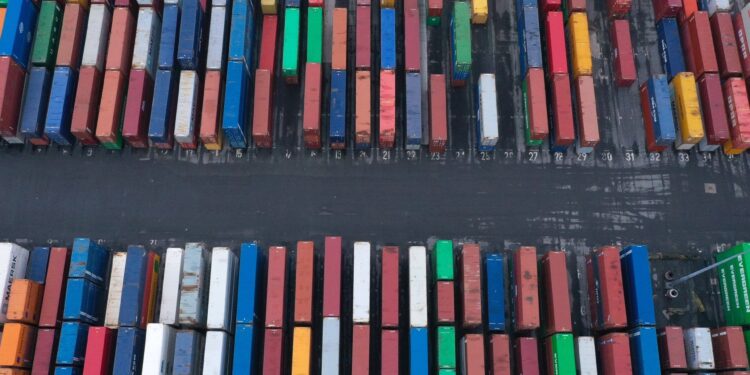The United States faces complex challenges related to the tariffs imposed in recent years, as some unexpected results show their negative effects on the labor market and the American economy, according to a recent report issued by Bloomberg.
Although tariffs are usually used as a means to protect domestic industry, stories such as those witnessed in the container truck sector reveal the complexity of this tool and its varying effects.
Huge tariff on container trucks
The agency states that in 2021, the United States imposed anti-dumping tariffs of more than 220% on container trucks made in China, which are vehicles used to transport containers on board trucks, which led to the halt of imports of these trucks from China International Marine Containers. Which dominated the global market.
According to Bloomberg, the company was selling more than 45,000 new containers annually in the American market, whose size ranges between 70,000 and 80,000 trucks.
With Chinese imports halted, the company needed to find alternatives, so it began producing trucks within the United States and created a new supply chain that combined tires made in Thailand with other components manufactured in the American states of Kentucky and Missouri.
American companies are at the forefront of those affected
Things did not stop there. According to Bloomberg, the United States witnessed an unexpected development when Bates Enterprises, one of the American companies that pushed for the imposition of the customs tariff, decided to import about 18,000 trucks from Vietnam.
However, in March 2023, US authorities discovered that Vietnamese trucks contained Chinese components, making them subject to the new tariffs, and causing a huge customs bill to be imposed on Bates worth tens of millions of dollars, in addition to a total loss of $250 million in revenue.
In a later development, “Bates” and other local companies accused the Chinese company of trying to circumvent customs tariffs, which led to the opening of a new investigation that lasted for a year.
Although the investigation ended with the Chinese company being acquitted, the company was forced to stop production in the United States and lay off hundreds of workers in California and Virginia, resulting in a loss of more than $100 million in revenue.
Effects of customs tariffs
Bloomberg points out that this story illustrates the complexity of the impact of the tariff on the American economy, as it caused significant financial losses and layoffs of workers, which shows that using the tariff as a means to stimulate the economy may sometimes have adverse effects.
Bloomberg quotes Kjell Ekland, CEO of Ekland Energy, as saying that these maneuvers may become a dynamic game, as strategies such as “tariff evasion” and “fake changes in transportation operations” continue to be used.
According to a Bloomberg analysis, this case indicates that protectionist policies such as tariffs may lead to undesirable outcomes, especially when they turn into tools for trade conflict between domestic and international companies, creating major challenges for the labor market and the American economy in general.



